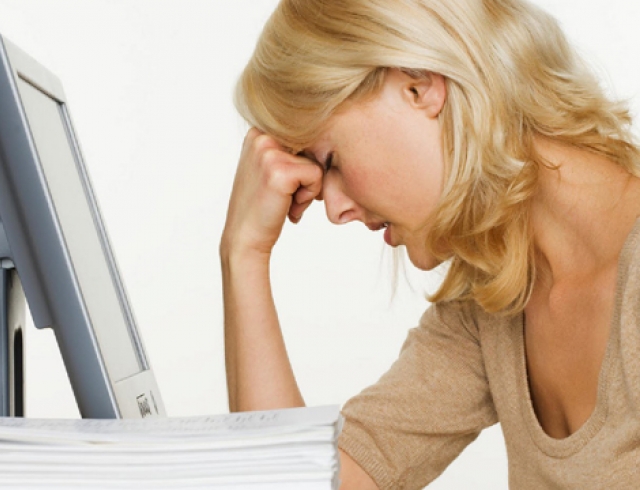
With the diagnosis of “post-discharge depression” to Western psychologists come many. The Russians are still coping with this problem on their own.
Any vacation ever ends and you have to go back to the office and continue to work. In psychology, there is even such a thing as” post-discharge syndrome”: a sharp change of situation (from rest to work) results in a person’s stress, irritability, laziness, depression and other unpleasant things. On average, about 40% of office workers experience some problems with a comfortable return to work after a vacation.
Associate Professor of psychology of personality, Institute of psychology and education Paul Austinpowers tips on how to cope with negative emotions and apathetic state.
He explained that with the end of summer, most people feel symptoms of depression.
– It seems that going to work after vacation should be easy, because the person rested and, properly, relaxed. In fact, it turns out that many people find it very difficult to get involved in the workflow. Workdays seem gray and dull, you do not want to work at all, there is distraction, and ordinary tasks become an unbearable burden.
According to the psychologist, some people’s negative emotions are relatively painless for the psyche, quickly extinguished, replaced by positive moments in life: communication with friends, a fun movie, a pleasant event.
And others apathetic mood and emotions for a long time” stuck”, do not go away, accumulate, causing physiological changes in the body in the form of exacerbation of old diseases or the emergence of new ones.
– Almost 25% of people have the so-called” starting readiness ” for various kinds of emotional impacts, breakdowns, accumulation of negative emotions.
Emotions are the train that accompanies any events in our lives and it is especially important how our psyche is able to “weed out” them, to cope with the negative, leaving only pleasant experiences.
Vacation most of us perceive as a salvation from everyday routine. This is a joyful event that we often wait for throughout the year. That’s why coming back from it becomes so bleak.
– The reasons of occurrence of this disease, which the West invented the beautiful term “postvacation Blues” or “politruka Blues”, there are many. Voice those that lie on the surface.
First, vacation is a different mode of life. Of course, this is good for the body as a whole. But when a person starts his work duties, he has to get up earlier, more time.
Very often, after going to work from vacation, people get sick. This is a kind of protective reaction of the body, a common psychological trick-to extend your rest. Disease as it helps to make a more soft transition to the surrounding reality. This condition usually blamed holidaymakers to acclimatize. In fact, a person simply can not dramatically switch from one life rhythm to another.
Second, before you leave for work can now be solved in time problem. And the cumulative effect (achieved through the gradual accumulation, concentration of factors and their subsequent explosive nature) – depression.
The expert said that this can be avoided if you start to devote more time to yourself.
– A person needs at least once a day to be in peace, alone with his thoughts – this contributes to moral rest.
The expert also advises not to return home the day before the expected exit to work. It is necessary to set aside 3-4 days for acclimatization and rest after the flight. No matter how overwhelmed the desire to rush headlong into the working rhythm, it is necessary to restrain yourself. It is necessary to smoothly enter the working rhythm and the cycle of household chores.
– In order to have enough impressions of the holiday for a long time, you should choose what coincides with our needs, choose the kind of holiday that we like. And just be able to relax!
Pavel Ustin recalled a study by American scientists who observed more than 12 thousand men for nine years and found that men who refused annual leave, preferring to earn money, had a 32% higher risk of death from a heart attack. The risk of death from other causes increased by 21%. And a recent study of women found that women who work without leave are two to three times more likely to suffer from depression.
If you caught yourself thinking: “After vacation I do not want to work!”, it does not mean that you do not like your work, the psychologist of IPO is sure.
– Before you go to work, think about why you love her. Think about pleasant moments related to work, about your favorite colleagues. Maybe you will even realize that you miss work, and then return to their duties will be much easier and more enjoyable.
If going to work seems like a complete disaster for a month, you are annoyed by everything, and the idea of changing the job becomes an obsession, then it is really worth thinking about and weighing all the pros and cons. Perhaps it’s time for you to change – and then you should set yourself a goal and immerse yourself in its achievement.